"We're Going to Change Everything!" Five Famous People Who Broke the System and Succeeded
Many famous people we know today as successful entrepreneurs, genius inventors, outstanding statesmen, and public figures came from the very bottom.
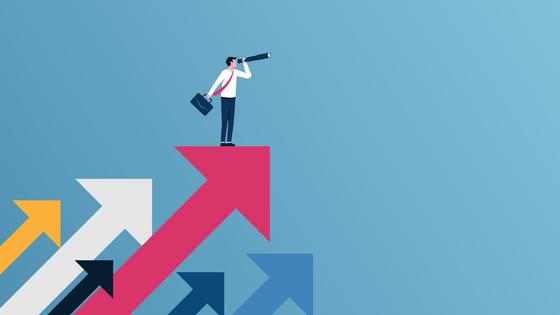
Apart from their determination and perseverance, they had virtually no favourable conditions for developing their talent. But despite everything, these people achieved their goals, and the world learnt their names and recognised them as geniuses. Today, we will tell you about five people who changed their destiny and overcame the most challenging and tragic circumstances on the way to success.
Steve Jobs
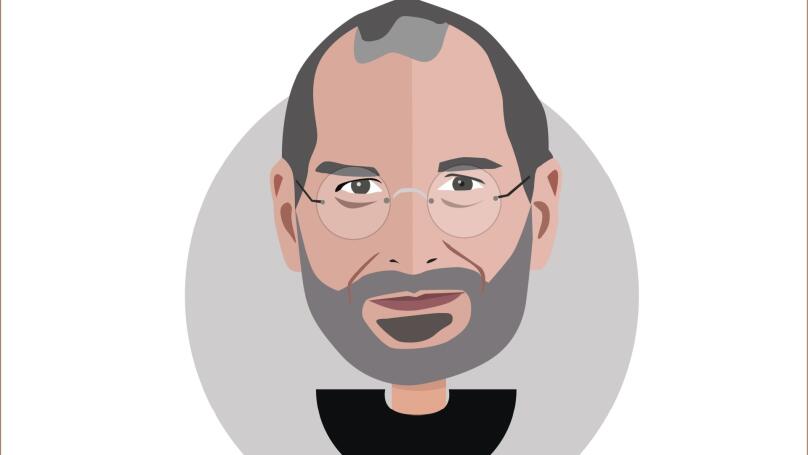
Steve Jobs is known today as the pioneer of modern IT technology. He was the founder, chairman and CEO of the American corporation Apple and the film studio Pixar. Jobs is a vivid example of a talented entrepreneur and revolutionary of the computer industry and mobile gadgets. However, not everyone knows Jobs's path to becoming the person he always dreamt of becoming.
Steve Jobs was born in 1955. However, his name was Abdul Latif Jandali. The father of the future genius was a native of Syria, Abdulfattah Jandali, and his mother - Joan Schieble was from a family of German immigrants. The young people were not married and gave their newborn son up for adoption. In the new family of Paul and Clara Jobs, the boy received the name Steven and the opportunity to live in better conditions.
His father, whom Steve always considered family, Paul Jobs, was an auto mechanic who repaired old cars for long hours day and night to earn money to give his son a prestigious education. The boy often spent time with his father in his workshop and, although he was not attracted to cars, learnt the basics of electronics and became fascinated by technology. Little Jobs' passion from childhood was innovations, inventions, and electronic technologies. He assembled and disassembled radios, discovered how televisions work and dreamt of creating a computer. It led him to the research and development centre of the software company Hewlett-Packard. He later got his first job there. Steve was only thirteen years old at the time, and he received an invitation to work at HP. Indeed, he even got a personal invitation to work for them from the CEO! However, despite these fantastic prospects, Steve did not avoid other occupations that allowed them to earn money - he delivered newspapers, worked in warehouses in electronics shops, and installed and serviced air conditioners.
It wasn't until 1976, in his father's garage, that Steve, together with friend and like-minded Steve Wozniak, founded Apple Computer Inc. and produced his first personal computer, the Apple I. Apple II followed. It was the first mass-produced product and made the company super profitable for over a decade, and the Macintosh. They became genuinely innovative products that contributed to the computer industry's rapid development, and with each presentation of a new invention, Jobs turned it into a captivating show. Indeed, thanks to this, the interest in technology has become fascinating even to people far from it.
Sadly, however, in 1985, Jobs left his company because of numerous conflicts with the board of directors. Undeterred, Steve then created NeXT, Inc. However, in the late 90's initiated its merger with Apple. Under his stewardship, the company experienced impressive growth and enjoyed great success with users of computers, which appeared by that time in every home. Later, upon returning to Apple, Jobs made vital moves to develop and evolve innovative services such as iTunes and the App Store, the first iPod, and the iPhone. In addition to convenience and innovation, Steve paid particular attention to the design of his products, which always had a recognisable style, ease of use, and an intuitive interface.
Tragically, Steve Jobs left Apple in 2011 due to pancreatic cancer. He passed away that same year, leaving an incredible legacy and an entire high-tech industry. Jobs is now revered as a gadget and marketing legend, recalling his quote, "The people who are crazy enough to think they can change the world are the ones who do."
Oprah Winfrey
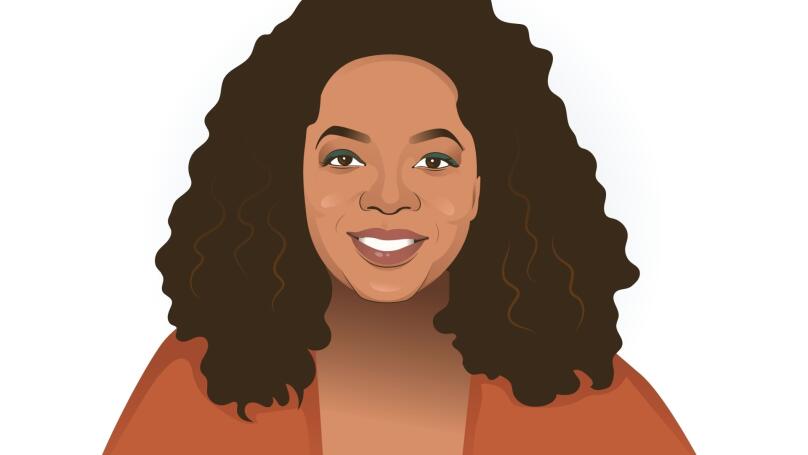
Called a television legend, she is a renowned journalist, businesswoman, philanthropist and the first black female billionaire in history. However, her childhood and adolescence were filled with drama and violence. Oprah was born in a small town in Mississippi. For the first six years, the girl lived in incredible poverty with her grandmother, thanks to whom she learnt to read and write before she reached the age of three. Around the same age, the girl's first public appearance took place. Her Easter speech to the parishioners of the village church was a resounding success.
Later, already grown up, Oprah moved in with her mother, but she was constantly missing work and had to leave the children in the care of relatives. Only many years later, and famous Oprah told how at the tender age of nine, she was raped by her cousin. It was followed by many more episodes of violence on the part of her brothers, their friends, and her uncle.
As a teenager, Oprah began to use drugs, stole money from her mother and once ran away from home. At the age of thirteen, she found out she was pregnant and tried to commit suicide. Her baby was born prematurely and died, but Oprah herself survived and went to live with her father. "My father turned my life upside down," Winfrey shared her memories. - He never tired of saying I was much better than I thought and sacredly believed I would undoubtedly become even better. Her dad paid particular attention to their education and regularly took her to the library, so she expanded her vocabulary to at least five words daily.
At age nineteen, Oprah got her first job in television and became an assistant news anchor at CBS. She is the first African American to hold this position on public television. Subsequently, just three years later - at twenty-two- Oprah became a commentator on ABC's late-night show. You'd think this is when her career would finally take off and she would achieve everything she deserved. Unfortunately, however, it didn't pan out like that. The show's producer decided that Winfrey was unsuitable for television, removed her from the evening programme and transferred her to the dull morning show "Baltimore Talks." Unexpectedly, the show's ratings increased significantly - in less than a month! Then ABC invited Oprah to its Chicago affiliate to "save" the local morning programme AM Chicago. Her views also crept up, and after just a few months, the programme became the most popular in the city. Soon, in 1986, AM Chicago went on the national air as "The Oprah Winfrey Show." Almost every American home watched it, and it was broadcast to more than 60 other countries. The show won forty-eight Emmy Awards, including a nomination for Best Host!
Over the next few years, Oprah became America's most popular and richest black woman. Winfrey also turned out to be a successful businesswoman. In the late 80's, she bought a film studio in Chicago and founded a multimedia production company, Harpo Productions. By the way, more than half of her staff are women.
Oprah is still an authority for ordinary Americans and other famous public figures. For example, many experts believe that George Bush Jr. and Barack Obama won the election thanks to the sympathy of Winfrey.
Oprah Winfrey turns any setbacks into opportunities. She finds strength, inspiration and springboards for new achievements even where others give up and retreat. But most importantly, Oprah teaches her viewers and fans not to rest on their laurels: "You only get in life what you dare to ask for. Don't be afraid to raise the bar."
François Pinault
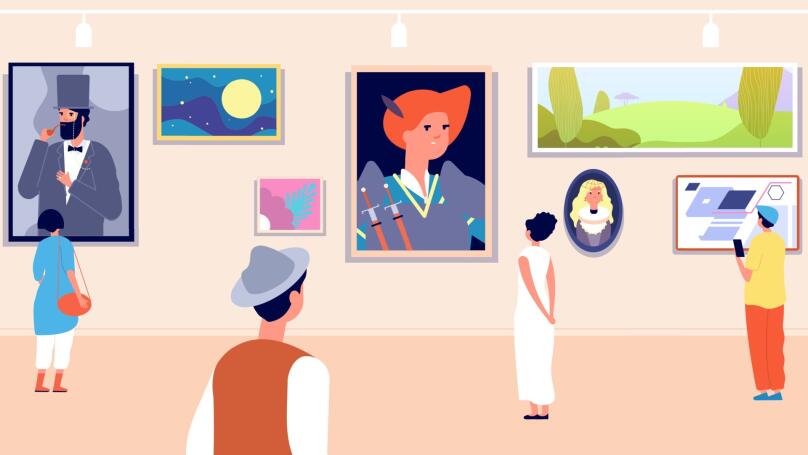
French entrepreneur, collector and philanthropist, one of the hundred wealthiest people on the planet, François Pinault, also comes from a low-income family. He was born in 1936 in the small village of Treverien. From childhood, he had a complex character, disregarded authority, demanded independence; and therefore, the family sawmill did not last long. The father of the future billionaire was the owner of a farm and a small sawmill, which he inherited from his grandfather. But the son abandoned the family business in favour of his own, although, at the time, he was not yet aware of it. Relatives tried to educate the teenager, but only quarrels ensued.
At age sixteen, Francois left school and was a simple labourer for a long time, interrupted by casual earnings in his native province and Paris. In 1954, a young man signed up as a volunteer and went to Algeria, where there was an anti-French uprising or "war of independence." A couple of years later, he returned with the rank of sergeant and took a job with the Gauthier Brothers company, which was involved in the timber trade. François worked there for two years before marrying the daughter of the head of the Gautier Brothers. The father-in-law, Baptiste Gauthier, handed over the business to his son-in-law and offered another nearly half a million francs for development. Then Pino began to demonstrate leadership qualities, showing his sharp mind, coolness and calculation, determination and other traits that were the envy of numerous competitors.
Pinault skilfully conducted negotiations, concluded the most favourable contracts, and opened branches of "Brothers Gauthier," which subsequently changed its name to Pinault Company worldwide. He spent his earnings on acquiring smaller and still unprofitable companies, which could be bought for nothing and then turned into thriving corporations. For example, already in the mid-80s, he could afford to buy one of the leading manufacturers of wooden panels in France - the company Isoroy. Later, Pinault acquired the insurance company Executive Life, a network of furniture shops Conforama, department stores Printemps, book and music shops FNA. All these deals and lucrative acquisitions finally bring Pinault into the elite of French business. "His business acumen is almost poetry," one of his closest advisors, economist Alain Mink, said of Pinault.
Pinot's first purchase already in the luxury segment was the acquisition in 1993 of one of the most famous and reputable wineries in France, Chateau Latour. A few years later, Pinot bought one of the platforms to purchase luxury goods - Christie's auction house. However, his primary acquisition was the purchase of Gucci. Thus, François became one of France's most influential and authoritative businessmen worldwide.
But in 2005, Pinault, who was then sixty-nine years old, handed over the business management to his son François-Henri, and he concentrated on his art collection. As a child and young man, Pinault did not have the opportunity to get exposed to high art, so in the 1980s, he began to collect his collection, and he owns works by Paul Seruzier, Pablo Picasso and Piet Mondrian. His collection of over three thousand works is estimated at two billion dollars.
Richard Branson
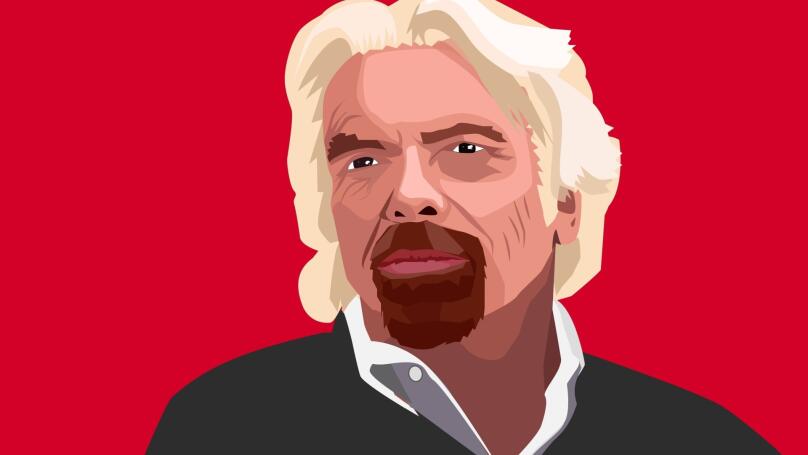
Branson is the founder of the international conglomerate of Virgin Group companies and simultaneously one of the most outrageous business people known globally.
Richard was born in 1950 in a reasonably prosperous area of London. Nevertheless, despite all the conditions to complete his studies, the school was not attractive to the boy. Young Richard was diagnosed with dyslexia and transferred to a particular boarding school. But the lad's desire to study never appeared, but his entrepreneurial spirit soon made itself felt. Branson founded his first business in high school - a youth magazine Student. The guy was only sixteen then, but he worked out how to earn money from the magazine and started selling advertising space there. For the sake of his own business, the future billionaire dropped out of school, although the magazine did not bring him much money in the end.
At nineteen, Richard moved to live in a London commune. He found himself in the bohemian crowd, keen on rock and roll. It gave him the idea to start mailing music records. Soon, Branson was already selling records at a discounted price. He then created the record company Virgin Records, where the Rolling Stones, Sex Pistols, Culture Club, Genesis, and many others recorded. Thus, the international conglomerate Virgin. He invested the profits in new businesses. Thus, Branson created a retail chain, Virgin Megastores, in 1976, a travel company, Virgin Voyager, in 1980, and Virgin Books and Virgin Video in the following year, 1981. A few more years later, one of the most famous companies of the billionaire appeared - the airline Virgin Atlantic.
Branson's business empire has over four hundred companies of various profiles, and the businessman owns a multi-billion dollar fortune. In 2004, Richard founded the most innovative company specialising in space tourism - Virgin Galactic. Less than ten years later, the test launch of SpaceShipTwo took place. And already in 2021, the billionaire and his team made a suborbital flight on his own ship.
In addition, Branson is known for his outrageous advertising campaigns. For example 1996, Richard Branson founded a chain of wedding salons, Virgin Brides. At the presentation of his brand, he appeared in a wedding dress and make-up. Although the company existed only until 2007, the appearance of the billionaire in a dress is remembered to this day. A few years later, in 2013, on an AirAsia flight from Perth, Australia, to Kuala Lumpur, Richard served drinks to passengers as a stewardess. The billionaire had lost a bet to AirAsia owner Tony Fernandes. The businessmen had a bet, and whichever Formula 1 team - Branson's Virgin or Fernandes' Lotus - loses in its debut season should work as a flight attendant for the winner's airline.
Branson, once a quiet boy with a strange diagnosis, has become the richest man on the planet. He has tried on hundreds of characters and tried his hand at dozens of businesses - publishing, telecoms, beauty and entertainment, energy and industry, transport, hotels and restaurants. "To hell with everything! Take it and do it!" - from Branson himself, it sounds very inspirational.
Lectera’s Online Courses by topic
Sarah Blakely
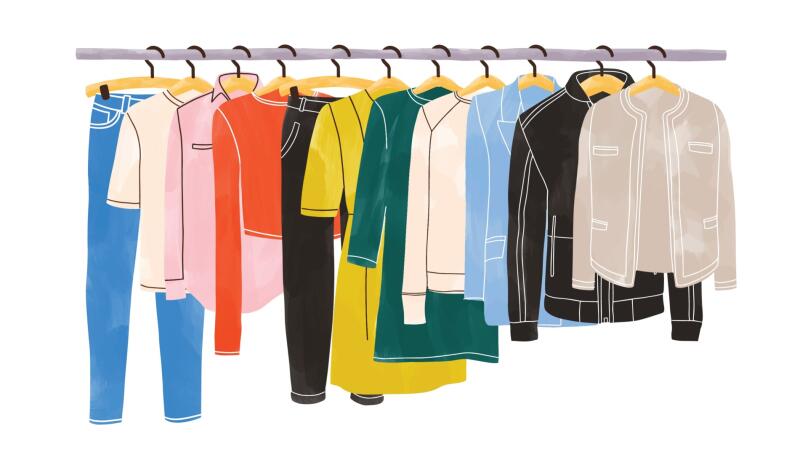
American businesswoman and philanthropist, who became the youngest female billionaire, was born in 1971 in a Florida resort town. Her father was a lawyer, and Sarah wanted to follow in his footsteps. But her legal career did not even have time to begin. Several times in a row, the girl failed the entrance exams. Then she decided that life had other plans for her and was not mistaken, although it was not easy for Blakely.
Her first job also did not go well. Sarah wanted to earn money and get a job at the Disneyland theme park, but she was not taken even in the growth dolls. "Unfortunately, to be Goofy, you had to be at least 176cm tall. Mine was 170cm. Moreover, I was told I could only work as a chipmunk. That career didn't work out," Sarah later recalled. After a while, she got a job at Danka. Her job was to sell faxes.
Thus, Sarah's career began in the office equipment company. The girl was so good at convincing customers to buy Danka products that she started to conduct training seminars for other employees for a few years, but she dreamt of something else.
Sarah knew first-hand how uncomfortable it was for women, especially office workers, to wear tight tights. So Blakely decided to create the perfect underwear. As you can guess, she succeeded, and the girl patented her brand Spanx. By the way, to convince the shop manager that her underwear is the best example of high quality and comfort, Sarah dragged the shop manager into the women's toilet. She demonstrated her product on herself during her brand's official presentation. As a result, the long-awaited contract was signed.
In the future, Sarah continued to promote her products in the same unconventional ways. For example, she personally sent several lingerie models to the editorial office for the already-known to you, Oprah Winfrey, to prove its convenience by example. So, when the TV presenter named Spanx underwear one of her "favourite things," sales skyrocketed. Today, the brand is a global manufacturer of women's and men's clothing. The company is valued at several billion dollars. In addition, Blakely is also active in helping other women start and grow businesses.
Of course, these are not all inspiring destinies of people who succeeded and changed the world despite all the obstacles and difficulties. The examples of Jeff Bezos, Stephen Hawking, and Joanne Rowling are no less inspiring and motivating. The main thing that unites successful people, who are now recognised as geniuses, is determination and perseverance, the ability not to give up and adapt to every situation, not only to accept difficult life circumstances but also to do everything to improve their lives and the world around them.
Share this with your friends via:
Latest News

A significant stage in the development of the alternative education system has begun in West Northamptonshire in the UK: the County Council is actively calling on parents, guardians, and trustees to participate in shaping the future of this key area.

Outwoods Primary School in Atherstone, Warwickshire, having experienced deep sadness after the loss of their famous cat, Silla, has found solace in a new pet – a Maine Coon named Aloysius O’Hara.

In modern universities, artificial intelligence, and in particular ChatGPT, is rapidly transforming from a controversial tool into a full-fledged student assistant.

An innovative educational project is gaining momentum in UK primary schools, aiming to change attitudes towards video games.

The Massachusetts Institute of Technology (MIT) presents MIT Learn – a revolutionary online platform that opens a “new front door” to access university knowledge and resources.












 Test: How Prone Are You to Abusive Behavior as a Manager?
Test: How Prone Are You to Abusive Behavior as a Manager?
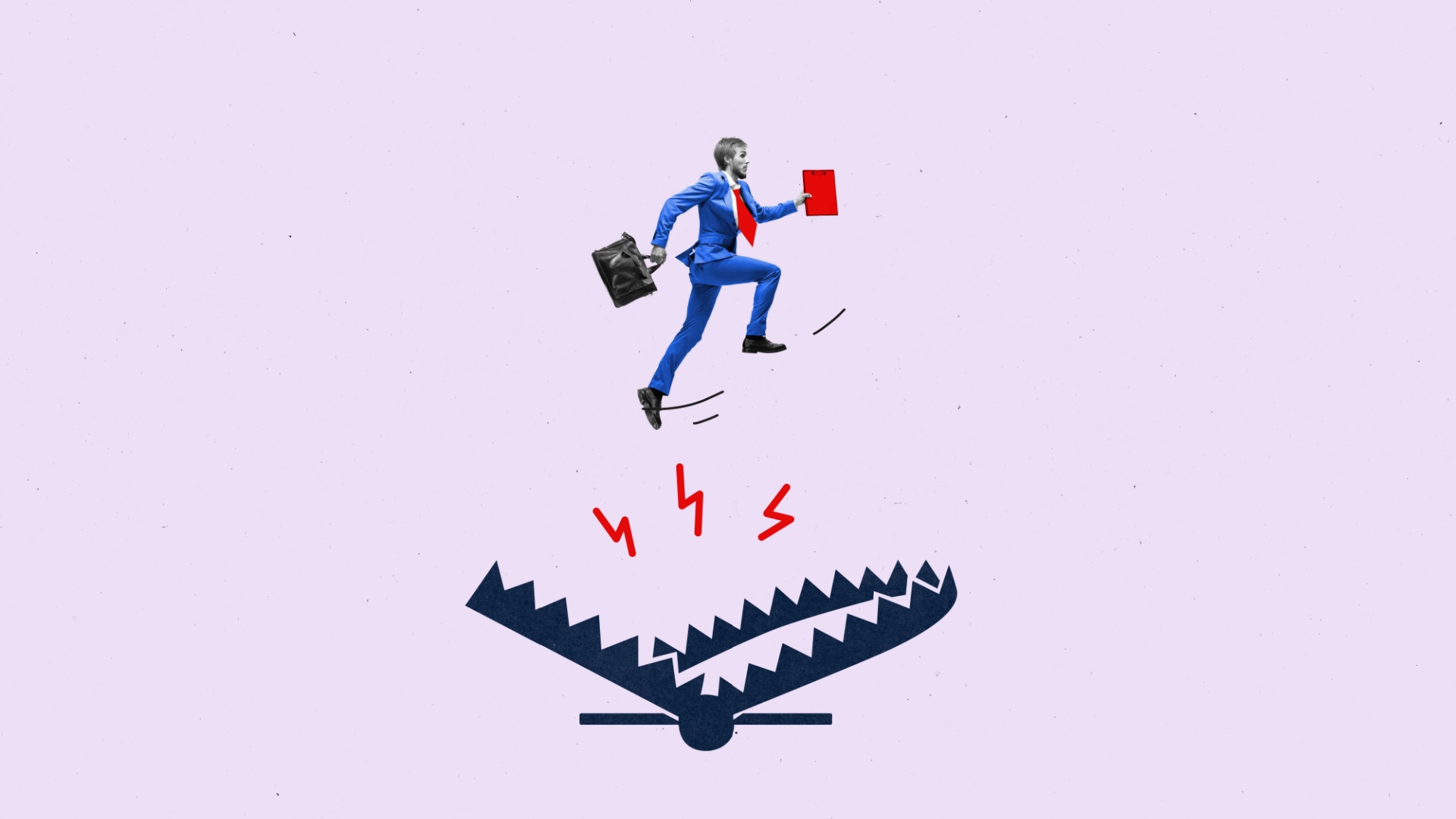 The Psychology of Decision-Making: 7 Traps Leaders Are Most Likely to Fall Into
The Psychology of Decision-Making: 7 Traps Leaders Are Most Likely to Fall Into
 Test. What superpower would you possess if you were a superhero?
Test. What superpower would you possess if you were a superhero?
 Test. What Should You Let Go of Before Winter Ends?
Test. What Should You Let Go of Before Winter Ends?
 Test. Which Ritual Should You Start Practicing This Winter?
Test. Which Ritual Should You Start Practicing This Winter?
 Which Christmas Movie Character Are You?
Which Christmas Movie Character Are You?
